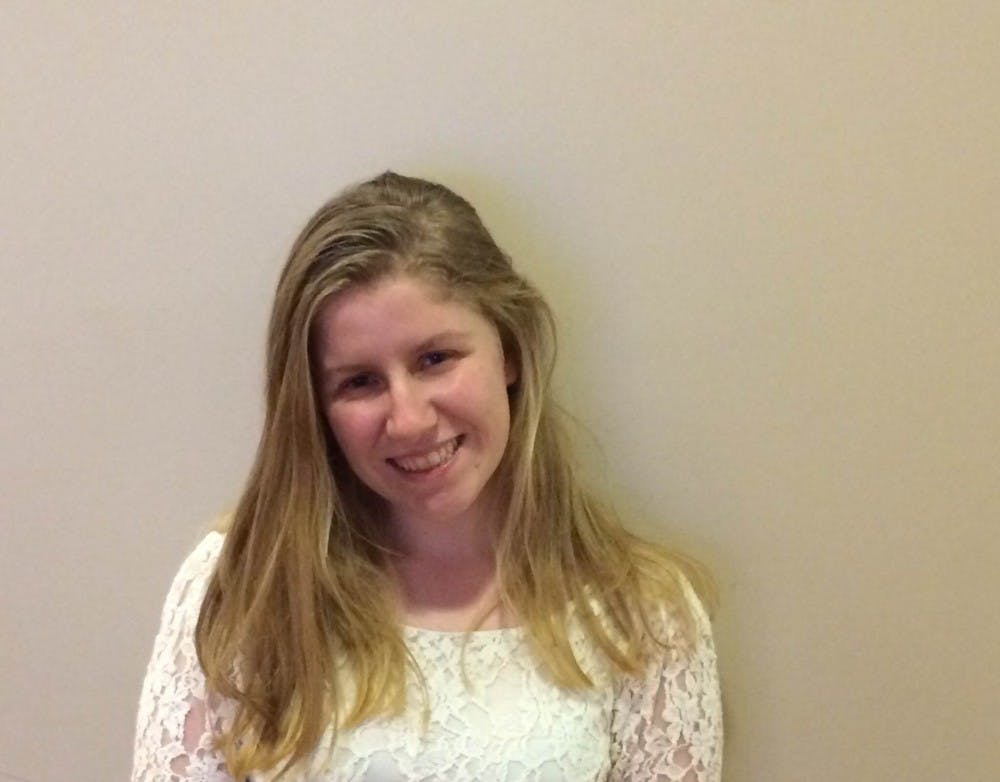I don't spend a lot of time on Tumblr. I'm probably not as active a feminist as I should be. I'll sometimes dress a little differently if there's a guy I think is cute. I've ambivalently accepted the objectification and heteronormativity of the "ratios" required by frats to enter their parties, and have proceeded to dance the night away with my friends.
But upon my first few days at Penn, I've become increasingly aware of my status as a girl interested in political affairs. It's something that I'm not quite used to, coming from a high school dominated by its female majority and famous for producing strong woman leaders, such as Supreme Court Justice Elena Kagan and Avril Haines, the current Deputy Director of the CIA. Perhaps I was naive, but I expected not much to change upon coming to college, at an Ivy League, aggregately liberal university.
As we hear Jon Stewart rant on about male representatives calling New York's junior Senator Kirsten Gillibrand, for whom I interned this summer, "porky" in government elevators, this campus, at least to me, seems to have a disconcerting representation of women involved in political groups. (Excluding organizations explicitly marketed as "feminist.")
Maybe I've just had bad luck. Maybe I'm just imagining a problem.
During NSO, I attended the relatively new Government and Politics Association's (GPA) inaugural Political Union meeting, a group organized to facilitate discourse between students of varying political and ideological affiliations. Only two members of the ten caucus leaders were female. I was one of two girls who asked a question, out of probably 10 or 15 members of the audience who chose to speak. I remember feeling awkward being the first female to ask a question, and directing that question to another woman. "Would people think I was starting a cat fight?" I worried for the first time in my life. Perhaps I was just too "sensitive" to the mostly male group surrounding me.
Later in the evening, I explicitly asked one of the group's older members about the lack of female participation. He said that women simply weren't as politically active on Penn's campus as men. "Girls just aren't as aggressive, and I don't know why," he said. He apologized for my discomfort. "It is a problem."
On the GPA's Executive Board's leadership website, there are 12 listed officers. Only two are female.
This disproportion is evident in other groups I visited as well. On Wednesday evening, I attended the interest meeting for Penn Political Review. Of its 12 senior positions, only one is filled be a woman. There are double the number of men on Penn Dem's leadership than women. Only the International Affairs Association seems to have somewhat equal representation on their executive board. Perhaps women care more about global affairs. Maybe the United States, which is one the few first world countries to have still never been headed by a woman, is too much of a mess to want to deal with.
But there is an undertone to these numbers that leaves me a little shaken. It's catching a Wharton-looking, white, senior guy unabashedly checking out a freshman girl merely attending the interest event of the club he helps lead. It's a woman's politically infused, only-half-humorous comment on how few girls are in an organization's group picture. It's the question I've had to ask myself too many times these three weeks: "Why am I always the first girl to talk?" It's the questions girls don't seem to be asking.
Surely, there are women in leadership positions on campus. There's even our president, Amy Gutmann.
But girls are either not showing up to these events and applying for higher leadership positions, or not getting them. Both are bad, and both are probably part of the problem.
There is a problem when men dominate both the attendance and the questions of political on-campus events. There is a problem when women who hold leadership positions stick out because of their gender. There is a problem when girls like me, who rarely pay attention to these things, start to worry.
This is college. It's about political exploration, learning to lead, and discussing fiscal and social policy with the people that don't agree with you. It's quite possible we'll never be exposed to a group of people this politically diverse again. We go to Penn. We're supposed to be changing the country, a country that needs to be talked about. Penn is not the place where anyone, especially women, should sit and watch. That's not why I came here.
I don't have any specific policy solution or particularly new perspective. I'm only a freshmen. I just beg girls to talk, to ask a question. I don't want to be the only one.
The Daily Pennsylvanian is an independent, student-run newspaper. Please consider making a donation to support the coverage that shapes the University. Your generosity ensures a future of strong journalism at Penn.
DonatePlease note All comments are eligible for publication in The Daily Pennsylvanian.









